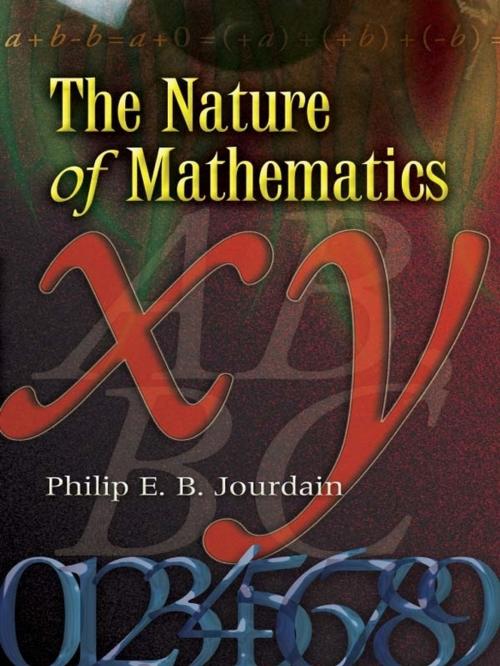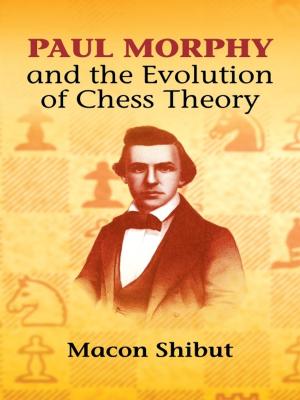The Nature of Mathematics
Nonfiction, Science & Nature, Science, Other Sciences, Applied Sciences, Mathematics, History| Author: | Philip E. B. Jourdain | ISBN: | 9780486154961 |
| Publisher: | Dover Publications | Publication: | January 9, 2013 |
| Imprint: | Dover Publications | Language: | English |
| Author: | Philip E. B. Jourdain |
| ISBN: | 9780486154961 |
| Publisher: | Dover Publications |
| Publication: | January 9, 2013 |
| Imprint: | Dover Publications |
| Language: | English |
Anyone with an interest in mathematics will welcome the republication of this little volume by a remarkable mathematician who was also a logician, a philosopher, and an occasional writer of fiction and poetry. Originally published in 1913, and later included in the acclaimed anthology The World of Mathematics, Jourdain's survey shows how and why the methods of mathematics were developed, traces the development of mathematical science from the earliest to modern times, and chronicles the application of mathematics to natural science.
Starting with the ancient Egyptians and Greeks, the author profiles mathematics' rise and progress with the development of analytical methods by Descartes, Galileo, Newton, Leibnitz, and others. The text focuses on principles rather than techniques, exploring the foundations of algebra, analytical geometry, and the method of indivisibles. It discusses the beginnings of the correlation of mathematics and natural science in the study of dynamics as well as the emergence of modern mathematics with the infinitesimal calculus. Additional topics include contemporary views of limits and numbers and a brief summation of the nature of mathematics.
Anyone with an interest in mathematics will welcome the republication of this little volume by a remarkable mathematician who was also a logician, a philosopher, and an occasional writer of fiction and poetry. Originally published in 1913, and later included in the acclaimed anthology The World of Mathematics, Jourdain's survey shows how and why the methods of mathematics were developed, traces the development of mathematical science from the earliest to modern times, and chronicles the application of mathematics to natural science.
Starting with the ancient Egyptians and Greeks, the author profiles mathematics' rise and progress with the development of analytical methods by Descartes, Galileo, Newton, Leibnitz, and others. The text focuses on principles rather than techniques, exploring the foundations of algebra, analytical geometry, and the method of indivisibles. It discusses the beginnings of the correlation of mathematics and natural science in the study of dynamics as well as the emergence of modern mathematics with the infinitesimal calculus. Additional topics include contemporary views of limits and numbers and a brief summation of the nature of mathematics.















